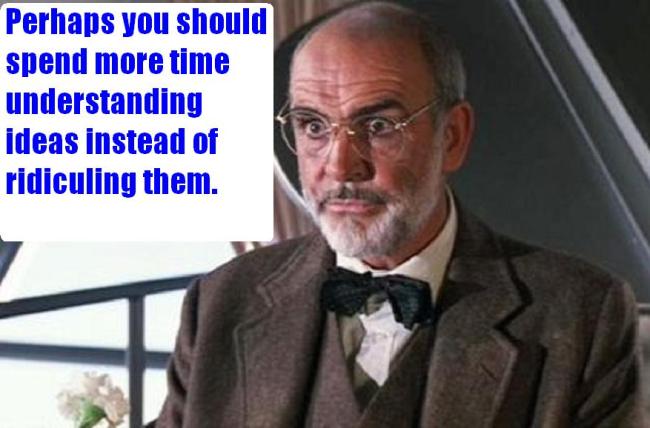“It is the mark of an educated mind to be able to entertain a thought without accepting it.”
— Aristotle
Pyrrhonism was a school of skepticism founded by his follower Aenesidemus in the first century BCE and recorded by Sextus Empiricus in the late 2nd century or early 3rd century CE. Subsequently, in the “New Academy” Arcesilaus (c. 315-241 BCE) and Carneades (c. 213-129 BCE) developed more theoretical perspectives by which conceptions of absolute truth and falsity were refuted as uncertain.
Whereas academic skepticism, with Carneades as its most famous adherent, claims that “Nothing can be known, not even this”, Pyrrhonian skeptics withhold any assent with regard to non-evident propositions and remain in a state of perpetual inquiry. They disputed the possibility of attaining truth by sensory apprehension, reason, or the two combined, and thence inferred the need for total suspension of judgment (epoché) on things.[2] A Pyrrhonist tries to make the arguments of both sides as strong as possible. Then he asks himself if there is any reason to prefer one side to the other. And if not, he suspends belief in either side. According to them, even the statement that nothing can be known isdogmatic. They thus attempted to make their skepticism universal, and to escape the reproach of basing it upon a fresh dogmatism.[3] Mental imperturbability (ataraxia) was the result to be attained by cultivating such a frame of mind.[3] As in Stoicism and Epicureanism, the happiness or satisfaction of the individual was the goal of life, and all three philosophies placed it in tranquility or indifference.[3] According to the Pyrrhonists, it is our opinions or unwarranted judgments about things which turn them into desires, painful effort, and disappointment.[3] -wikipedia
There is in the atheist community a creeping epistemilogical arrogance, that is not based on an understanding of science. The assumption is that everything is known or there are those that can know everything. It extracts authority and reason outside of reliance on oneself to attain to the solution or the answer.
Epistemological anarchism is an epistemological theory advanced by Austrian philosopher of science Paul Feyerabend which holds that there are no useful and exception-free methodological rules governing the progress of science or the growth of knowledge. It holds that the idea that science can or should operate according to universal and fixed rules is unrealistic, pernicious, and detrimental to science itself.[1] ~wikipedia
AGAINST METHOD (1975)[EDIT]
- One can show the following: given any rule, however “fundamental” or “necessary” for science, there are always circumstances when it is advisable not only to ignore the rule, but to adopt its opposite.
- Pg. 23
- First-world science is one science among many; by claiming to be more it ceases to be an instrument of research and turns into a (political) pressure group.
- Pg iii (Intro to the Chinese Edition of AM)
- It is clear, then, that the idea of a fixed method, or of a fixed theory or rationality, rests on too naive a view of man and his social surroundings. To those who look at the rich material provided by history, and who are not intent on impoverishing it in order to please their lower instincts, their craving for intellectual security in the form of clarity, precision, “objectivity”, “truth”, it will become clear that there is only one principle that can be defended under all circumstances and in all stages of human development. It is the principle:
- My intention is not to replace one set of general rules by another such set: my intention is, rather, to convince the reader that all methodologies, even the most obvious ones, have their limits. The best way to show this is to demonstrate the limits and even the irrationality of some rules which she, or he, is likely to regard as basic. In the case that induction (including induction by falsification) this means demonstrating how well the counterinductive procedure can be supported by argument.
~Paul Karl Feyerbend Wikiquotes
Now let’s discuss a growing trend in the pseudo-scientific Dawkins community which suggests that when looking for sources of inspiration when performing scientific experiments and doing research one should edit one’s consideration set to only include scientific sources of inspiration.
“I am enough of an artist to draw freely upon my imagination. Imagination is more important than knowledge. Knowledge is limited. Imagination encircles the world.”
― Albert Einstein“Logic will get you from A to Z; imagination will get you everywhere.”
― Albert Einstein
The reason that I bring this up is that I have had Dawkinites and other fundamentalist atheists ridicule, mock, and harass me for the fiction that I write and the creative exercises that I use for inspiration. There is no way that you can justify rationally choosing sources of inspiration where answers were found before to predict what the answers are going to be in the future or where the answers are going to be found. Suggesting that is the case doesn’t demonstrate the intelligence of the person who is incapable of entertaining an idea without embracing it, it demonstrates instead their immense lack of intelligence and understanding.




